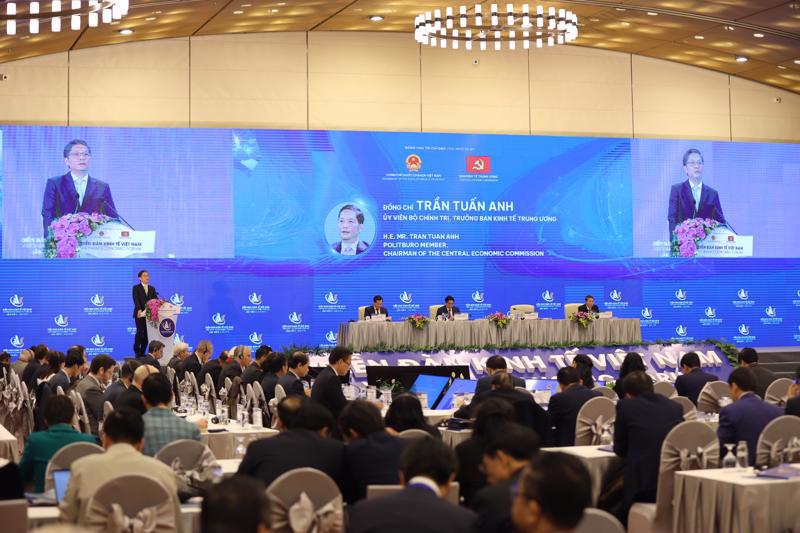The fifth Vietnam Economic Forum was held in Hanoi on December 17 to examine ways to stabilize the macro-economy, ensure major balances, and overcome the challenges in 2023.
Prime Minister Pham Minh Chinh, Head of the Party Central Committee's Economic Commission Tran Tuan Anh, Deputy Prime Minister Le Minh Khai, and National Assembly Vice Chairman Nguyen Duc Hai co-chaired the plenary session.
Mr. Anh said that after two years of Vietnam implementing the dual goals of controlling the pandemic and developing the economy, the country’s economic performance has recovered and positive results have been recorded, ensuring major balances and stabilizing the macroeconomy.
Economic growth is tipped to hit 8 per cent for the year; the highest rate since 2011. Export revenue in the first eleven months rose more than 13.4 per cent. FDI disbursement saw a year-on-year increase of 15.1 per cent.
Mr. Anh emphasized that in order to post such achievements, the government consistently conducted a policy of reform and open doors in cooperation and development, taken advantage of both external and internal resources, and been flexible and proactive in handling emerging issues.
It also offered a range of support policies throughout the year and strengthened business’s capacity for recovery, including with tax and fee reductions.
“These figures show that consumption has recovered strongly after the pandemic,” Mr. Anh told the gathering. “The business sector has boosted production and exports, and the increase in FDI disbursement demonstrates the confidence among foreign investors in Vietnam’s economic prospects in the years to come.”
He added that Vietnam needs to adopt policies and response scenarios to ensure even more sustainable and stronger development in the future.
For the first time, Vietnam’s Manufacturing Purchasing Managers Index (PMI) fell below 50 after a 13-month period of increase. Some workers lost their jobs as a result.
There remain major imbalances in services. Exchange rates and interest rates have increased dramatically over recent months, reflecting liquidity stress in the banking and financial market. Disbursement of public investment is still low, at an estimated 58.33 per cent in the first eleven months.
“This creates a paradox, where the economy is short of capital while State resources, though largely available, can’t be fully utilized,” Mr. Anh explained.
In response to the shortcomings and limitations in the economy and to global factors, Vietnam must recognize the opportunities and the challenges and introduce appropriate policies, he said.









 Google translate
Google translate